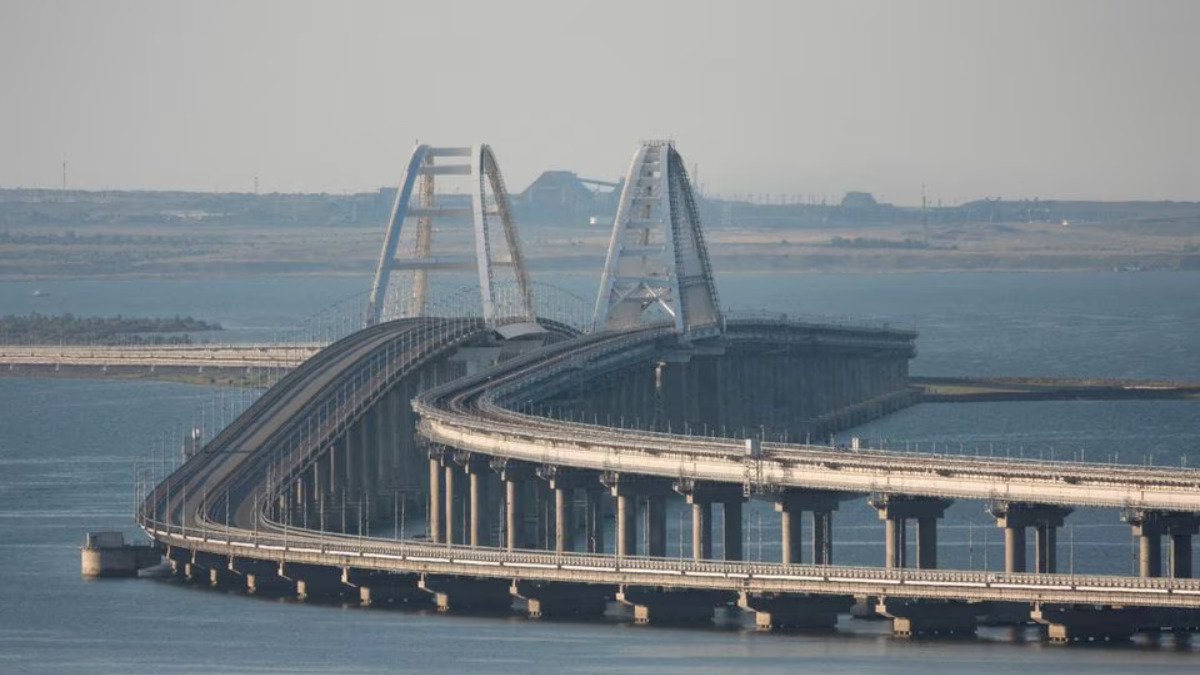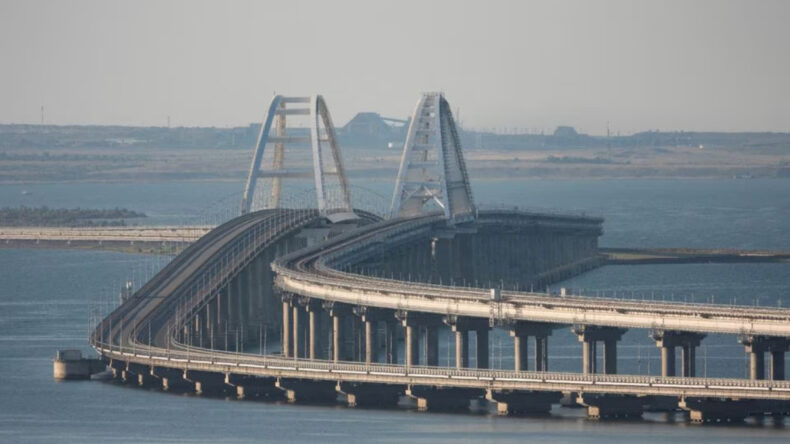On Monday, Russia announced its decision to halt participation in the year-old U.N.-brokered agreement, which allowed Ukraine to export grain through the Black Sea. This move has raised concerns among poorer nations, fearing that food prices will rise, making it difficult for people to afford essential food items. Just hours before this announcement, an explosion occurred, damaging Russia’s bridge to Crimea.

Moscow accused Ukrainian sea drones of carrying out the strike, resulting in the deaths of two people. The bridge was a vital route for Russian troops involved in the conflict in Ukraine. The Kremlin labeled it a terrorist attack on a crucial road link. However, authorities asserted that the attack on the bridge and the decision to suspend the grain deal were unrelated. Instead, they claimed the suspension was due to Ukraine’s failure to meet Moscow’s demands regarding the implementation of a parallel agreement that would ease regulations for Russia’s food and fertilizer exports.
Kremlin spokesman Dmitry Peskov stated that the Black Sea agreements involving Russia had not been executed satisfactorily, leading to the termination of their effect. As a consequence, U.N. Secretary-General Antonio Guterres clarified that Russia’s withdrawal from the grain deal also meant the termination of the related agreement to support Russia’s grain and fertilizer exports. Moscow indicated a possibility of rejoining the grain deal if its demands were met with concrete results. However, during the suspension period, Russia would revoke its guarantees for safe navigation.
In response to Moscow’s decision, the White House in Washington expressed concern that the suspension of the pact would exacerbate food security issues and negatively impact millions of people. U.S. Secretary of State Antony Blinken condemned the move as unconscionable.
Impact could be profound in Africa
Ukraine and Russia, two major global exporters of grain and other food products, potentially face an interruption in their exports. Such a disruption could lead to a significant increase in food prices worldwide. The consequences of this situation would be particularly severe in Somalia, Ethiopia, and Kenya, where the Horn of Africa is currently experiencing its most severe drought in many decades. Halima Hussein, a mother of five residing in a crowded camp in Mogadishu, Somalia’s capital, expressed her concerns about survival amidst the ongoing challenges of failed rains and violence.
To counter the de facto blockade imposed by Russia last year, Ukraine’s President Volodymyr Zelenskiy proposed the resumption of grain exports without Russian involvement. He suggested that Ukraine would seek support from Turkey to effectively counteract the blockade. Zelenskiy emphasized the importance of a collaborative effort among Ukraine, the United Nations, and Turkey to establish a food corridor and conduct vessel inspections. He stressed the opportunity for the international community to demonstrate that they would not tolerate blackmail and emphasized the need for collective action to ensure security and protection from Russia’s disruptive actions.
Russian Offensive
Ukrainian forces are actively engaging in a counteroffensive against Russian troops in the south and east, with recent reports of civilians being killed by Russian forces during a major push in the northeast. The Ukrainian Deputy Defence Minister, Hanna Maliar, confirmed heavy fighting in the Kupiansk sector in the Kharkiv region, with positions changing multiple times a day.
According to the Ukrainian Armed Forces East group’s spokesperson, Serhiy Cherevatyi, Russia has assembled a substantial military presence, including over 100,000 personnel, more than 900 tanks, over 555 artillery systems, and 370 multiple launch rocket systems in the Lyman-Kupiansk sector. However, Reuters could not independently verify these claims, and there was no immediate comment from Moscow.
A blast on the road bridge to Crimea could impact Moscow’s ability to supply troops in southern Ukraine. While Russian President Vladimir Putin stated that the bridge hadn’t been used for military transports for a long time, traffic on the bridge had been partially restored. Ukrainian media reported that the country’s Security Service (SBU) had deployed maritime drones against the bridge, but no direct responsibility was claimed.
The ongoing conflict and disruption in the region are raising concerns about the grain deal brokered by the United Nations and Turkey last year to prevent a global food emergency. Global commodity food prices have risen, indicating some apprehension among traders, although a severe supply crisis is not yet widely anticipated.
Western nations believe that Moscow is attempting to use its influence over the grain deal to weaken financial sanctions that do not apply to agricultural exports. Moscow has extended the Black Sea deal several times, but it suspended its participation after a Ukrainian drone attack on its fleet in October. For a few days, Ukraine, Turkey, and the United Nations kept exports going without Russia.
The potential resumption of shipments without Moscow’s consent may depend on insurers, who are reportedly considering freezing their coverage due to uncertainties, particularly if Russia mines the area, which would effectively halt any insurance offering.













